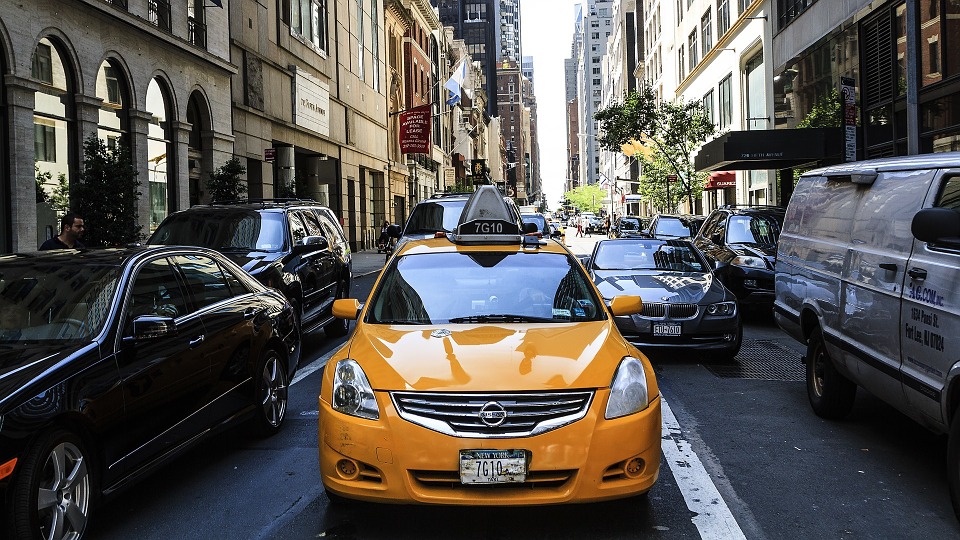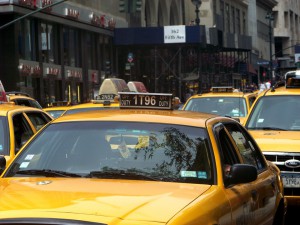
Uber is a mobile app that connects people who need a ride with willing drivers. The convenience of the mobile app has made Uber in to a $50 billion company, according to valuations from CNN Money reports.
However, Uber’s self-described ride sharing model has caused concern for many, including public policy makers, its traditional cab competitors, its drivers and its potential customers.
Uber & The Law
Uber isn’t subject to the same government regulations that traditional taxi companies must comply with. Because they don’t follow the regulations that are standard in the taxi industry, Uber must be given legal permission to operate in a locality. Currently, New York City is the only place in New York state where Uber is allowed to operate. However, Uber is trying to enter the Syracuse, NY market.
Uber claims that allowing it to operate in Syracuse will bring several benefits to the area, including jobs and a convenient alternative to traditional cab companies. However, the quality of jobs, costs to consumers and fair commerce competition between Uber and taxis are all questionable.
Ubers Impact on Jobs in Syracuse, NY
On Nov. 10, Uber held a job fair in Syracuse. Uber announced that it would bring 1,000 jobs to Rochester, a market with comparable size to Syracuse, according to a Nov. 10 Localsyr.com report.
While Uber totes the quantity of jobs it will bring to the Central New York area, the quality of jobs created from Uber is questionable. Uber classifies its drivers as independent contractors, not employees. This means that Uber doesn’t have to provide any employee benefits that are standard for traditional businesses. This creates an opportunity for inadequate employment for job seekers and unequal competition for cab competitors. Uber drivers don’t receive health insurance, workers’ compensation or other basic benefits.

In addition to Uber drivers lacking benefits, Uber drivers lack sufficient working hours to earn a living wage. Most Uber drivers work only 15 hours a week, according to a Jan. 22 Time report. Uber drivers’ earnings are also reduced because they’re responsible for maintenance costs of their vehicle.
“There is not enough business for an Uber driver to make a living,” said Mark Ilacqua, owner of Suburban Transportation, a Syracuse, NY taxi service.
Is Uber Good For Competition?
Uber doesn’t compete on an even playing field with its cab competitors. In addition to the aforementioned ability to avoid the costs of employee benefits that other cab companies have to comply with, Uber doesn’t need to meet regulatory requirements for driver background checks. While cab companies are required to perform background checks on the people they hire, Uber’s background checks aren’t adequate. San Francisco District Attorney George Gascon said one of Uber’s drivers was convicted of murder in 1982. The San Francisco DA said Uber’s background checks failed to find the criminal records of 25 drivers in San Francisco and Los Angeles, according to an Aug. 19 New York Times report. Other Uber hires included convicted sex offenders and kidnappers, according to the aforementioned New York Times report.

“If Uber and other TNC’s [transportation network companies] are allowed to operate with exemptions, it will hurt the local transportation industry and turn it into a free-for-all. There will be a lot of collateral damage that many politicians do not take the time to consider,” said Mark Ilacqua in an August 9 Syracuse.com article.
Uber supporters claim other cab companies are at a technological disadvantage. The convenience offered by Uber by booking a ride from a mobile app is appealing to many consumers. However, Suburban Transportation has an equally convenient mobile app for both Android and Apple.
Is Uber Good For Consumers?
The collateral damage that Ilacqua talks about doesn’t just hurt cab companies. At times when Uber’s services are needed most, Uber increases its prices. Uber uses a surge pricing model. This surge pricing model means that when Uber services are in high demand, prices for Uber services increase.
This can lead to Uber customers unknowingly paying extremely high prices for a ride. One woman reported having to pay Uber $362 for a 20-minute ride, according to a Nov. 1 Business Insider report. Uber rides that cost consumers hundreds aren’t just rare occasions, either. One Uber customer reported being charged $400 for a 25-minute ride on New Year’s Eve in New York City, and another reportedly paid $116 for a 7-mile ride, according to a Jan. 1, 2014 Business Insider article.
Are You Keeping Up?
At the heart of the Uber debate is competition. ACS Web Design & SEO specializes in helping businesses use the web to its full potential to help our clients surpass their competition, both in terms of online visibility and online marketing.
Let’s talk about how we can help your business.
